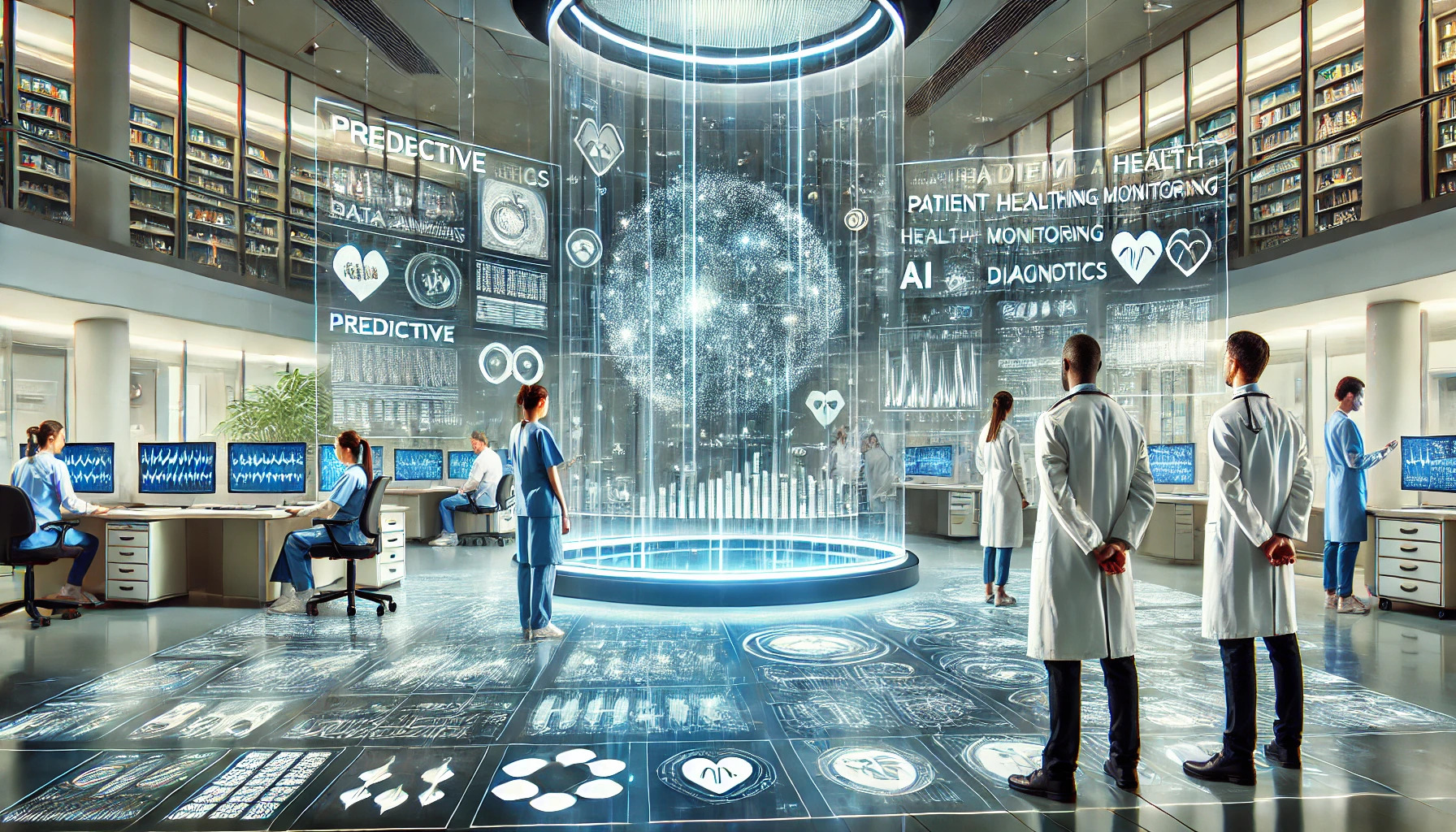In today’s fast-evolving healthcare landscape, big data is playing a crucial role in improving patient outcomes, optimizing operations, and driving medical research. The ability to collect, process, and analyze vast amounts of healthcare data has transformed how providers, researchers, and policymakers approach healthcare services. Big data solutions offer powerful tools to enhance diagnostics, treatment plans, hospital management, and public health initiatives.
Why Big Data Matters in Healthcare
The healthcare industry generates massive amounts of data from various sources, including electronic health records (EHRs), medical imaging, wearable devices, insurance claims, and clinical trials. Traditional data processing methods are often inadequate for handling such complex and high-volume data. This is where big data solutions come into play, enabling real-time analytics, predictive modeling, and AI-driven insights to improve healthcare delivery.
What is Big Data in Healthcare?
Big Data in healthcare refers to the large-scale collection, storage, and analysis of medical and patient-related information. These datasets come from various sources, including:
Electronic Health Records (EHRs) – Patient medical history, lab results, and doctor’s notes
Medical Imaging – X-rays, MRIs, and CT scans
Wearable Devices & IoT – Smartwatches, fitness trackers, and remote monitoring devices
Genomic Data – DNA sequencing and genetic research
Clinical Trials & Research – Pharmaceutical studies and drug development
Hospital & Administrative Data – Billing, insurance claims, and operational records
By leveraging advanced analytics, machine learning (ML), and artificial intelligence (AI), healthcare providers can turn raw data into actionable insights.
Key Applications of Big Data in Healthcare
Predictive Analytics for Disease Prevention
Big data analytics enables healthcare professionals to predict disease outbreaks and identify high-risk patients. By analyzing historical data and patient records, hospitals can proactively address chronic diseases such as diabetes, heart disease, and cancer, offering early intervention and preventive measures.

Personalized Treatment Plans
Using big data and AI-driven algorithms, healthcare providers can develop personalized treatment plans based on a patient’s medical history, genetic profile, and real-time health data. This approach enhances precision medicine, ensuring that treatments are more effective and tailored to individual needs.
Real-Time Monitoring and Wearable Technology
Wearable devices and IoT-enabled medical sensors generate continuous streams of health data, helping doctors monitor patients remotely. Big data platforms can process this data in real time, alerting healthcare professionals to any critical changes in a patient’s health status. This is particularly useful for managing chronic conditions such as hypertension and diabetes.
Operational Efficiency and Cost Reduction
Hospitals and healthcare facilities use big data solutions to streamline workflows, optimize resource allocation, and reduce operational costs. Predictive models help forecast patient admission rates, ensuring that staffing and medical supplies are efficiently managed to prevent shortages or excess inventory.
Enhancing Medical Research and Drug Development
Big data accelerates drug discovery and clinical trials by analyzing vast datasets from research studies, patient records, and genomic sequencing. This allows pharmaceutical companies to identify potential drug candidates, improve trial efficiency, and reduce the time required to bring new treatments to market.
Fraud Detection and Security
The healthcare sector is vulnerable to fraud, identity theft, and data breaches. Big data analytics helps detect fraudulent activities by identifying unusual billing patterns and monitoring electronic transactions. Additionally, advanced cybersecurity measures, including AI-driven anomaly detection, help protect sensitive patient information.

Top Big Data Technologies for Healthcare
Apache Hadoop – A scalable big data processing framework used for storing and analyzing large healthcare datasets.
Apache Spark – A real-time data processing engine that supports machine learning and AI applications in healthcare.
Google BigQuery – A cloud-based analytics platform for processing massive amounts of medical data.
Snowflake – A cloud data warehouse solution offering secure storage and advanced analytics for healthcare data.
Tableau & Power BI – Data visualization tools that help healthcare providers interpret complex medical data through interactive dashboards.
AI & Machine Learning Platforms – Tools such as TensorFlow and IBM Watson assist in predictive analytics and personalized treatment recommendations.
Real-World Examples of Big Data in Healthcare
IBM Watson Health – Uses AI to analyze medical records and suggest cancer treatment options
Google DeepMind – Develops AI models to detect eye diseases and predict kidney failure
Wearable Tech (Apple, Fitbit, Garmin) – Tracks real-time health data for heart conditions and sleep disorders
Epic Systems & Cerner – EHR platforms that integrate Big Data analytics for hospitals
Challenges in Implementing Big Data in Healthcare
Despite its benefits, adopting big data in healthcare comes with challenges:
Data Privacy and Security: Ensuring compliance with HIPAA and GDPR regulations to protect patient data.
Integration of Disparate Data Sources: Combining data from multiple healthcare systems and formats.
High Implementation Costs: Investing in big data infrastructure and skilled personnel.
Data Quality and Accuracy: Addressing issues related to incomplete, outdated, or inconsistent health records.
The Future of Big Data in Healthcare
The future of Big Data in healthcare is AI-driven, patient-centric, and data-secure. Key trends include:
AI-powered robotic surgery
Predictive analytics for precision medicine
Blockchain for secure patient data sharing
5G-enabled remote healthcare services
With continuous advancements in Big Data analytics, cloud computing, and AI, healthcare will become more proactive than reactive, ultimately leading to better patient outcomes and cost savings.
Big Data is no longer just a technological trend—it’s a healthcare revolution. From early disease detection to AI-driven treatment recommendations, the impact of Big Data solutions is saving lives and improving healthcare systems worldwide.
Big data solutions are revolutionizing healthcare by improving patient outcomes, reducing costs, and advancing medical research. As healthcare organizations continue to embrace data-driven decision-making, the potential for innovation in personalized medicine, disease prevention, and hospital management will only grow. By leveraging cutting-edge big data technologies, the healthcare industry can build a more efficient, predictive, and patient-centric future.
Would you like recommendations on specific big data tools for your healthcare business? Let’s explore the right solution together!